Key takeaways
- Quizlet engages children in learning by transforming study sessions into interactive games, boosting their confidence and motivation.
- Short, focused study sessions tailored to a child’s mood enhance retention and maintain interest without overwhelming them.
- Creating visually appealing and relatable study materials encourages ownership and makes learning feel more natural and enjoyable.
- Progress tracking empowers parents to identify areas for improvement and celebrate milestones, reinforcing motivation and learning success.
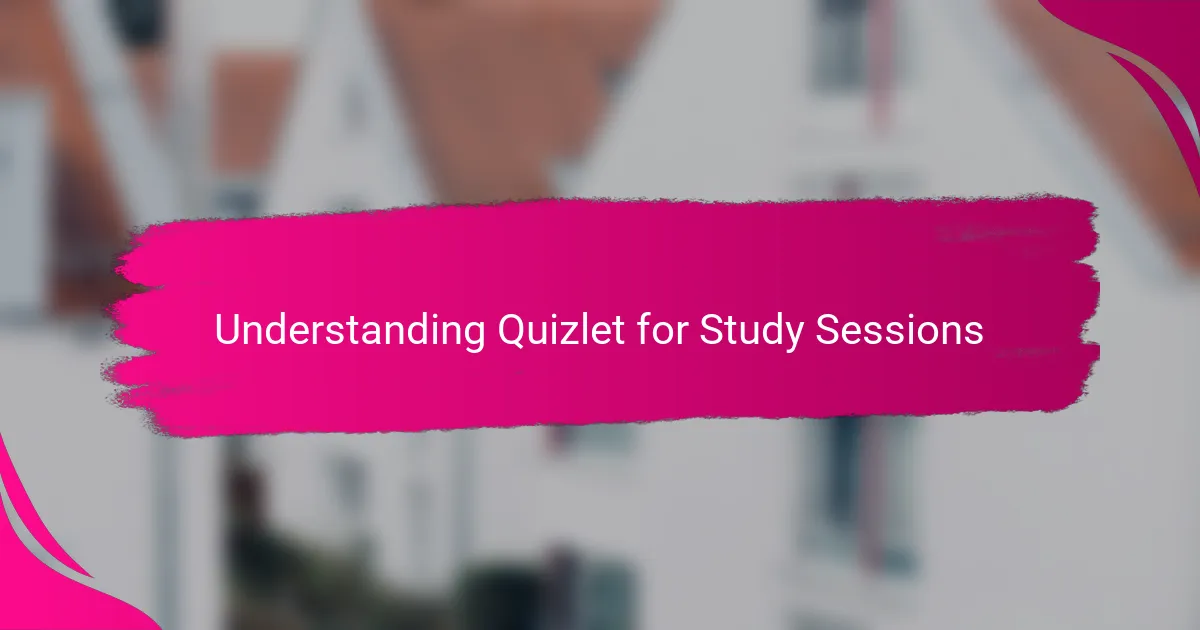
Understanding Quizlet for Study Sessions
When I first discovered Quizlet, I wasn’t sure if it would really fit into our busy family routine. But understanding how it works for study sessions quickly changed my perspective. It offers a simple way to create flashcards and interactive quizzes that make learning more engaging for kids—and honestly, it takes a lot of pressure off me as a parent.
What I appreciate most is how Quizlet adapts to different study styles. Whether my child prefers typing answers, matching terms, or listening to definitions, the variety keeps the sessions fresh. Have you noticed how children’s focus can wander during traditional study methods? Quizlet helps bridge that gap by turning memorization into a game they actually want to play.
I’ve found that grasping these features isn’t just about technology—it’s about making learning feel less like a chore. When my child feels confident using Quizlet, it builds a sense of independence and even pride in their progress. Isn’t that the ultimate goal we all want as parents? Understanding Quizlet is the first step to making that happen.
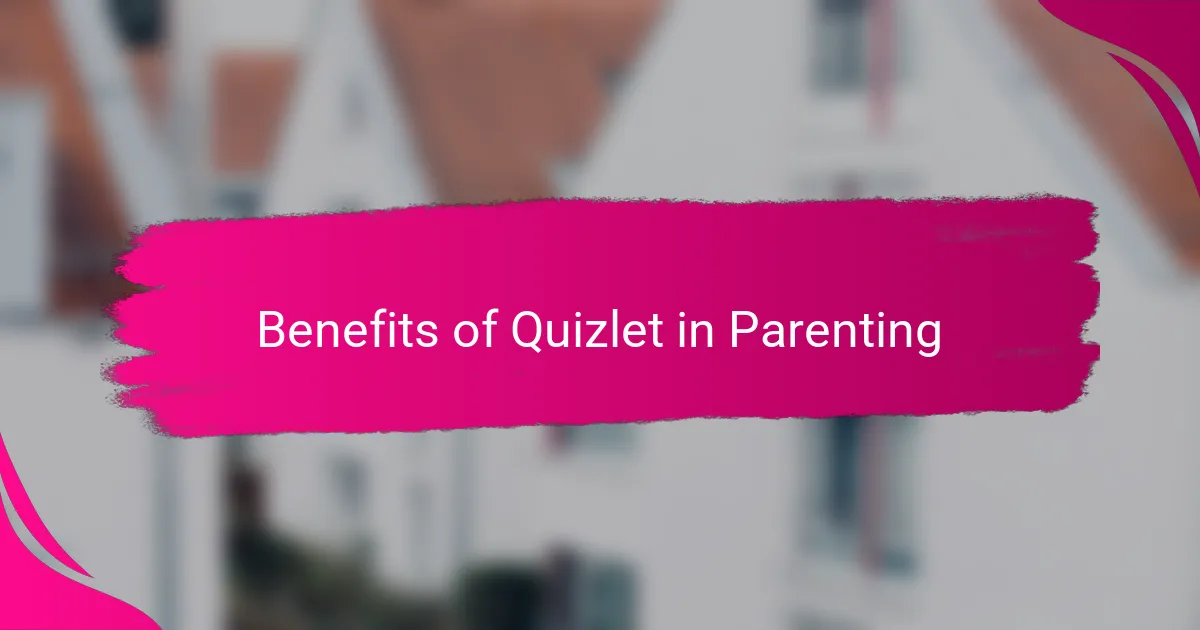
Benefits of Quizlet in Parenting
One thing I really value about Quizlet is how it turns study time into something we can share as a family. Instead of me having to drill facts endlessly, Quizlet’s games and quizzes encourage my child to take the lead, which naturally boosts their confidence. Have you ever noticed how kids respond better when they feel in control? This tool really helps with that.
Using Quizlet has also helped me stay connected to my child’s learning journey without feeling overwhelmed. I can quickly see what topics they’re working on and where they might need extra support—without the stress of sitting through long study sessions. It’s like having a front-row seat to their progress, which makes me feel more involved and less like I’m just handing over the responsibility.
Plus, there’s something comforting about fostering good study habits early on, and Quizlet makes it easier to build those routines. When my child enjoys learning, even for a few minutes every day, it sets a positive tone for their overall attitude toward school. Don’t we all hope to spark that kind of lifelong curiosity? Quizlet definitely helps me do just that in a way that fits naturally into our parenting style.
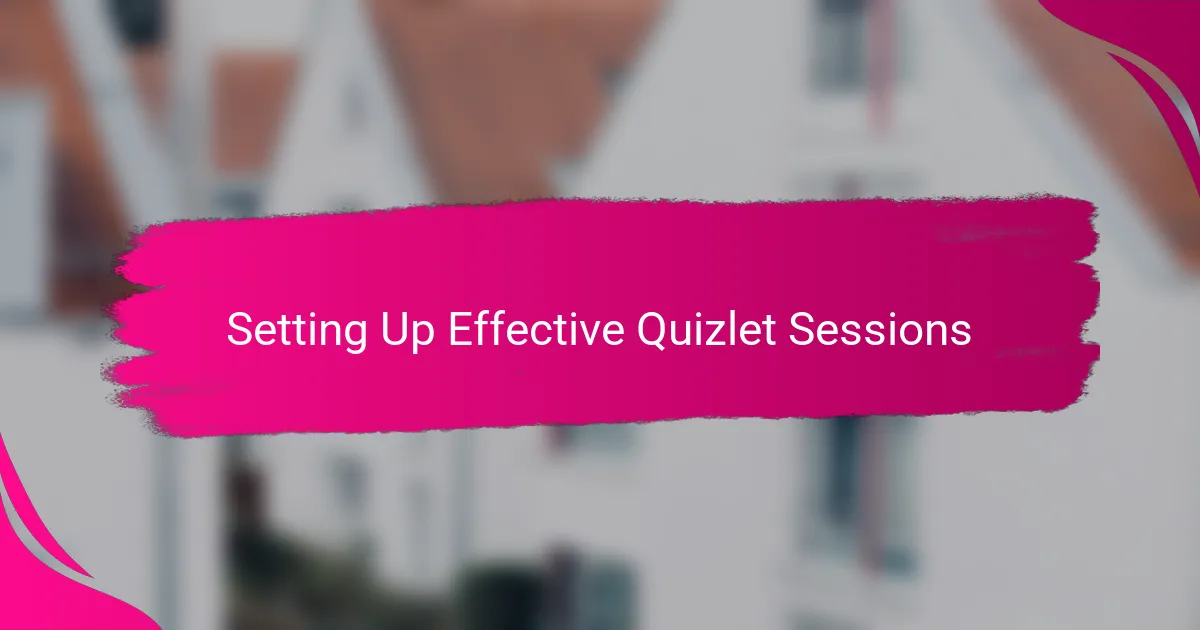
Setting Up Effective Quizlet Sessions
What’s worked best for me when setting up Quizlet sessions is keeping things short and focused. I organize the study cards into small, manageable chunks so my child doesn’t feel overwhelmed. Have you ever sat with your kid as their attention drifts? Breaking it down this way really helps maintain their interest.
I’ve also learned to customize the sessions based on my child’s mood and energy levels. Sometimes we stick to quick matching games, and other times we dive into typing answers or listening exercises. That flexibility feels key—it respects their pace and keeps frustration at bay, which I think is crucial for any effective study time.
Another little trick I use is scheduling regular, consistent sessions rather than random cram times. Making Quizlet part of our daily routine—like a quick five to ten-minute review after dinner—turns studying into a habit rather than a chore. It’s amazing how much more willing my child is to engage when it becomes predictable and stress-free. Doesn’t having that rhythm make everything smoother?
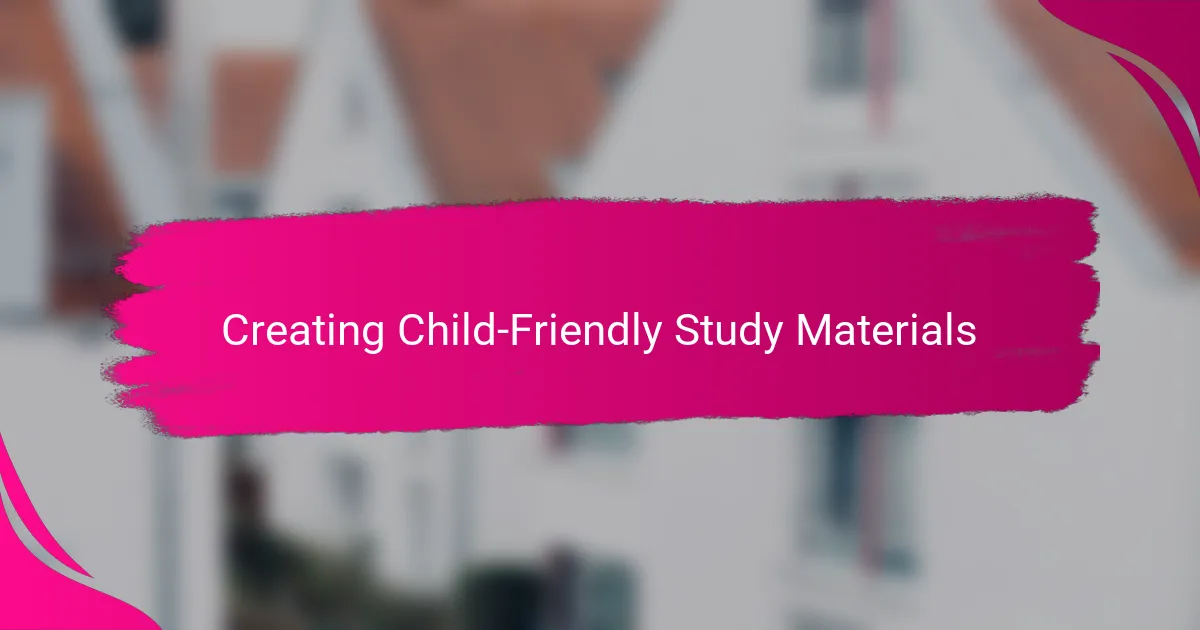
Creating Child-Friendly Study Materials
Creating study materials that truly connect with my child means thinking beyond just facts and definitions. I try to use simple language and relatable examples, which makes concepts feel less intimidating. Have you ever noticed how kids respond better when learning feels like a natural part of their world?
Visuals play a huge role in grabbing attention. I like to include bright colors and fun images on Quizlet cards because they make information stick better in my child’s mind. It’s like turning study time into a story rather than a list of words to memorize.
Sometimes, I involve my child in making the materials. Asking them to help create flashcards turns the process into a fun collaboration and boosts their ownership of what they’re learning. When they’re part of the creation, they seem more eager to revisit the content later. Doesn’t that sense of control make all the difference?
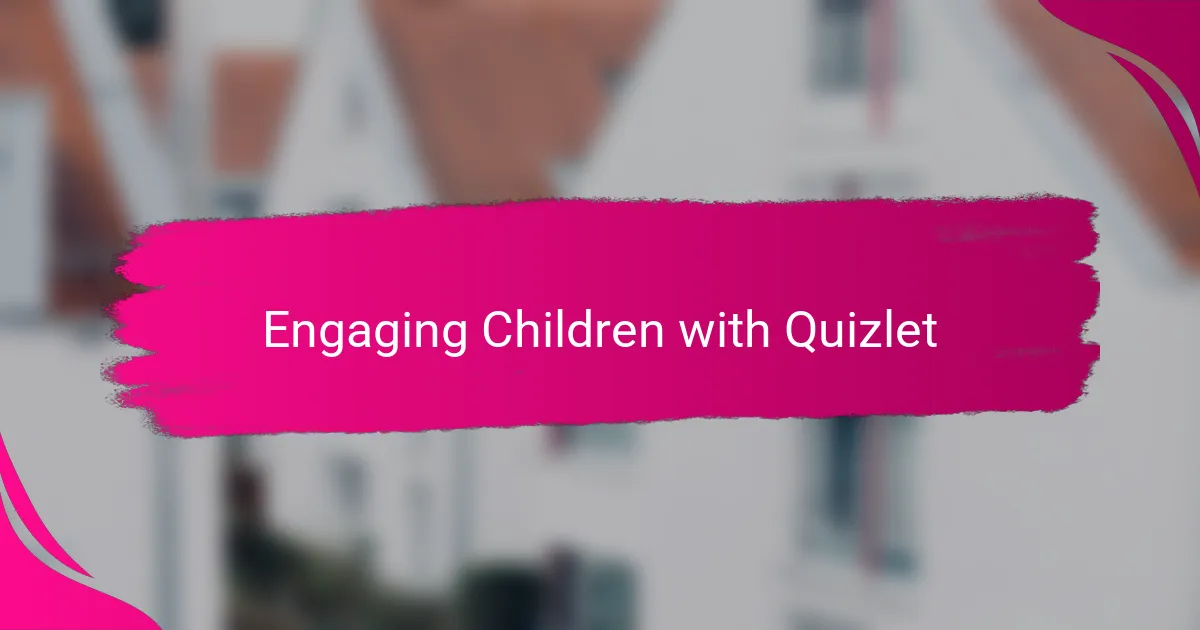
Engaging Children with Quizlet
One thing I’ve noticed is that children really light up when learning feels interactive. With Quizlet, my child loves the challenge of timed games and matching activities—it’s like they’re playing rather than studying. Have you ever seen that spark when a simple activity turns into pure fun? That’s the kind of engagement Quizlet brings to our study sessions.
I often catch my child excitedly asking for “just one more round” on the flashcard games. That enthusiasm tells me they’re genuinely motivated, which can be tough to achieve with traditional methods. What’s more rewarding than seeing your child ask to keep learning on their own terms? Quizlet has made that not only possible but natural in our daily routine.
Sometimes, I experiment with turning Quizlet study into little competitions between siblings or friends, and it’s amazing how much more engaged they get. That friendly challenge encourages them to focus better and remember more because it feels like a shared adventure. Have you tried adding a bit of playful rivalry? It’s a simple trick that really makes the learning stick.
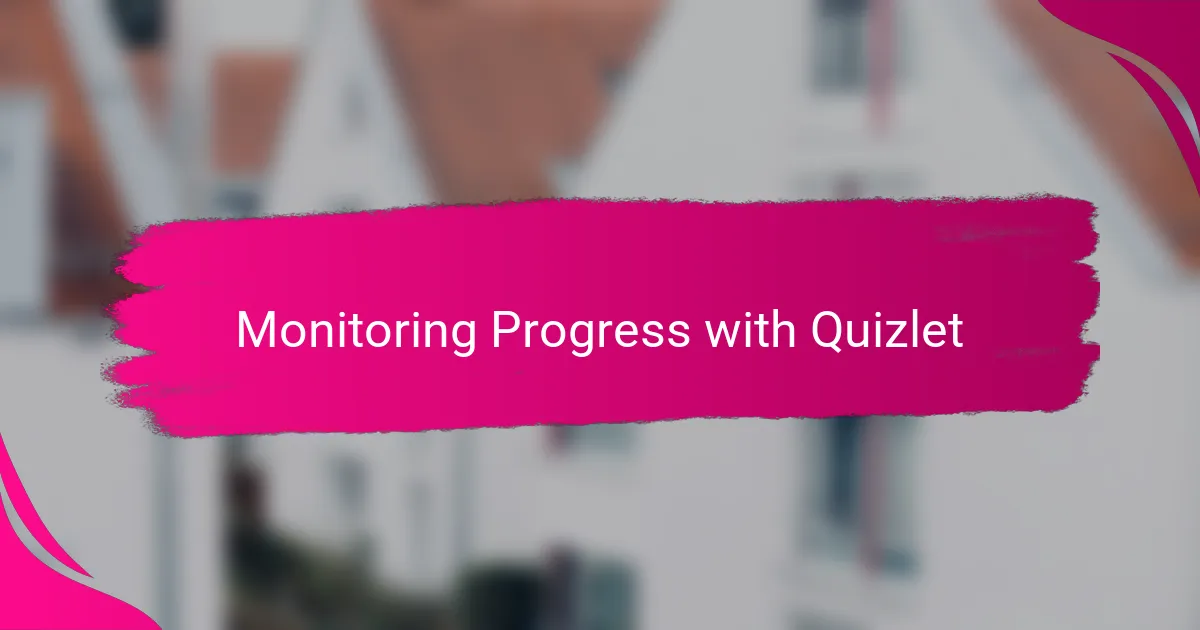
Monitoring Progress with Quizlet
One of the features I rely on most in Quizlet is the progress tracking. It’s satisfying to see the data showing which topics my child has mastered and where they still stumble. Don’t you find it reassuring when you get a clear picture of how your child is really doing, instead of guessing?
I remember once noticing that my child was repeatedly missing questions on a particular set of flashcards. Being able to spot this early meant we could focus our next sessions right there, turning frustration into a victory. That kind of immediate feedback has made all the difference in keeping motivation high.
Quizlet’s progress reports also help me celebrate small wins with enthusiasm. When my child sees they’ve improved or completed a module, their confidence soars. Isn’t it wonderful when learning feels rewarding, and you get to be part of those proud moments? That’s what monitoring progress has brought into our study routine.
